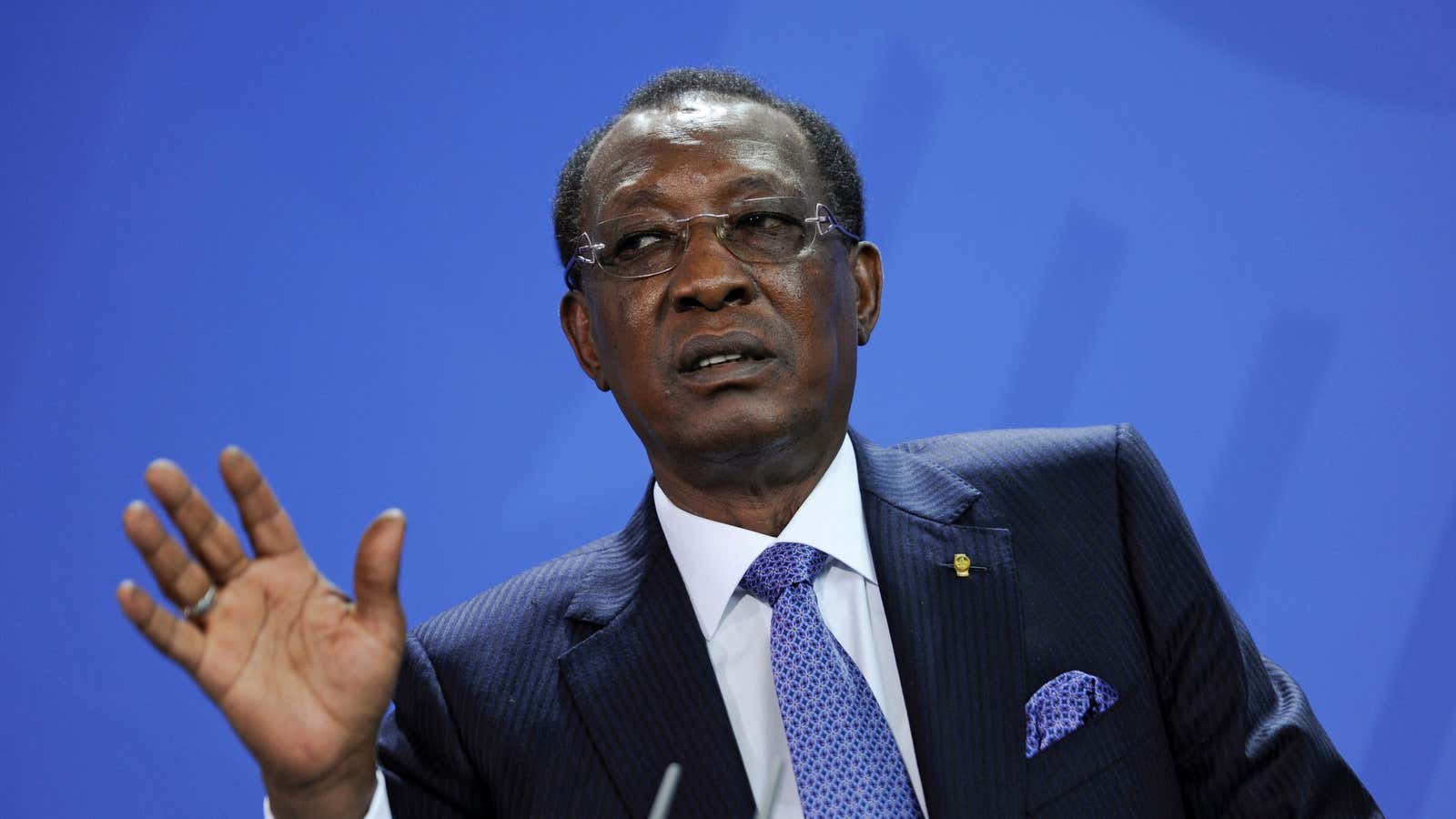Social media and messaging platforms including WhatsApp, Facebook Messenger, and Viber have been blocked in Chad, a move advocacy groups have linked to the tense political situation in the country.
From as early as Mar. 28, users started reporting a shutdown, according to the organization Internet Without Borders (IWB). The internet censorship watchdog, the Open Observatory of Network Interference (OONI), also confirmed network measurement data showed the BBC’s news website was blocked.
The cutoff comes after a national conference, boycotted by the opposition, recommended constitutional changes that could extend president Idriss Deby’s rule until 2033. Deby has ruled over the Central African nation since 1990. Legislative elections, due in 2015, have also been pushed behind several times. A largely semi-desert nation plagued by instability, Chad’s economy is heavily dependent on oil exports. But the plunge in commodity prices has pushed the government to impose cuts in spending that has roiled the nation in strikes and protests.
“Unfortunately, the Chadian regime is used to shutting down telecommunications, [the] internet in particular, whenever there are demonstrations or public expression of people’s discontent towards the government,” says Julie Owono, the executive director of IWB. Owono said the government might have instituted the blackout after videos of clashes within president Deby’s own Zaghawa clan were shared on WhatsApp. Authorities also didn’t respond to IWB’s request on why they blocked the BBC’s online site.
The current shutdown comes just days after advocacy groups submitted a report to the UN Human Rights Council detailing evidence of breaching freedom of expression, access to information, and the right to privacy. The violations included the January internet blackout ahead of demonstrations organized by civil society organizations, besides the eight-month social media cutoff following controversial elections in 2016. IWB estimates all these blackouts combined cost the Chadian economy €18 million ($22.1 million).
Yet Chad is hardly the only African government shutting down the internet or blocking messaging apps: nine African countries did so last year ahead of elections, political protests or national exams.
